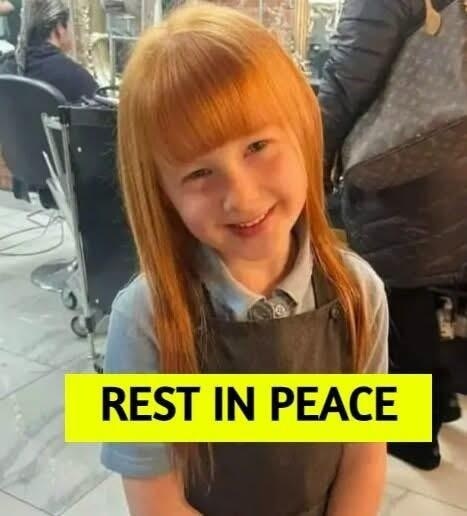Lila Marsland was a radiant five-year-old girl whose smile could brighten the darkest room. Her joy was contagious, her laughter unforgettable, and her energy endless. She loved being outdoors, adored school, and brought happiness to everyone she met. But behind the light of this little girl lies a story so devastating that it shook an entire community — a story not of illness, but of a system that failed to listen, act, and protect.
On December 27, 2023, during a family walk near Dovestone Reservoir in Greater Manchester, Lila started to feel unwell. What began as a seemingly normal outing during the festive season quickly spiraled into a nightmare. She complained of a headache and later vomited on the way back to the car. By the time they reached home, Lila was lethargic and experiencing neck pain — a sign her mother, Rachael Mincherton, instantly recognized as deeply troubling. Rachael wasn’t just Lila’s mother; she was also a district nurse at Tameside General Hospital, trained to recognize dangerous symptoms. Concerned that this could be something far more serious than a common virus, she brought Lila straight to the hospital where she worked.
Despite being seen by multiple professionals — a nurse practitioner, a junior doctor, and a pediatric registrar — Lila was discharged in the early hours of the following day with a diagnosis of tonsillitis. Rachael, although uneasy, trusted the judgment of her colleagues. After all, they were the same hospital team who had cared for Lila during previous illnesses. She wanted to believe her daughter was in good hands.
But less than ten hours later, on the morning of December 28, Rachael walked into her daughter’s room to find her unresponsive in bed. She immediately called emergency services and began CPR, but in her heart, she already knew it was too late. Lila was gone.
The post-mortem confirmed Rachael’s worst fears: Lila had died of pneumococcal meningitis, a condition that is often survivable if treated promptly with antibiotics. The tragedy wasn’t just the illness itself — it was that the warning signs were all there, yet the opportunity to act on them had been missed. During the inquest, the jury concluded that her death was not only preventable but the direct result of neglect. They stated plainly that if Lila had been admitted and given antibiotics within the first hour of her hospital visit, she would still be alive today.
For seventeen painful months, Rachael and Lila’s father, Darren Marsland, waited for the truth. What they received was confirmation of something they had already felt in their bones: that their little girl died because her care team failed her. Adding insult to injury, they never received a personal apology from the hospital trust. The only acknowledgment came in a cold, public statement issued after the inquest — far too little, far too late.
In the midst of unimaginable grief, Lila’s parents have refused to let her memory be reduced to a statistic or a medical oversight. Instead, they channeled their pain into something deeply meaningful: a charitable initiative called Lila’s Light. This program provides “bereavement bags” to children who have lost a sibling, helping them process their grief through writing and drawing. “Kids don’t always talk about their pain,” Darren said. “But they’ll write it. They’ll draw it.” Since its launch, more than 15 hospitals have received these kits, and the initiative has raised over $24,000. Darren even climbed Ben Nevis with friends in Lila’s honor — a physical and emotional journey symbolizing the mountain of pain they now carry.
Lila’s older sister, Ava, now 15, remains heartbroken. The two were inseparable. Rachael described Lila as not just a joyful child but a genuine delight to raise. She loved life, loved to laugh, and loved being around others. There are days when the grief is unbearable, and the “what-ifs” creep in. What if they had gone to a different hospital? What if they had insisted on a second opinion? The questions have no answers — only echoes of what could have been.
Lila Marsland should still be here — playing in the park, riding her bike, holding her sister’s hand, and making her classmates giggle. She should be planning birthday parties and summer adventures, not being remembered in headlines about medical neglect. But her name now stands for something more than loss. It stands for accountability. For awareness. For every parent who knows something is wrong and must fight to be heard.
Lila’s light continues to shine — not just in memory, but in action. Her story, while tragic, is a powerful call for change in pediatric care systems everywhere. She was not a number. She was a daughter, a sister, a friend, and a soul too beautiful for the way this world failed her.
Her family will never stop loving her, never stop missing her, and never stop sharing her light — because Lila’s story deserves to be told, not in whispers of sorrow, but in echoes of hope, strength, and the determination to ensure that no child is ever failed like she was.
